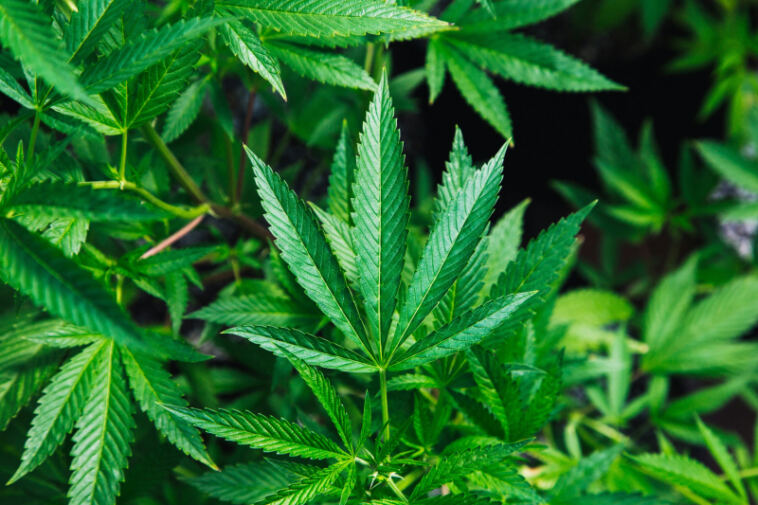- Like
- SHARE
- Digg
- Del
- Tumblr
- VKontakte
- Flattr
- Buffer
- Love This
- Save
- Odnoklassniki
- Meneame
- Blogger
- Amazon
- Yahoo Mail
- Gmail
- AOL
- Newsvine
- HackerNews
- Evernote
- MySpace
- Mail.ru
- Viadeo
- Line
- Comments
- Yummly
- SMS
- Viber
- Telegram
- JOIN
- Skype
- Facebook Messenger
- Kakao
- LiveJournal
- Yammer
- Edgar
- Fintel
- Mix
- Instapaper
- Copy Link
In the hazy landscape of cannabis regulation, one cannot overlook the profound impact it has on public health. As views and policies surrounding the legalization and control of this controversial plant continue to evolve, the ripple effects on the well-being of individuals and communities are unmistakable. From addiction rates to mental health outcomes, join us on a journey to explore the intricacies of how cannabis regulation shapes the health of society as a whole.
Examining the Evolution of Cannabis Regulations
As cannabis regulations continue to evolve, it is crucial to consider the impact they have on public health. One major aspect of this impact is the potential for increased access to cannabis products, leading to changes in patterns of use and potential public health risks. Additionally, regulations play a key role in determining the safety and quality of cannabis products available to consumers.
Furthermore, the shifting landscape of cannabis regulations can also influence public perceptions and attitudes towards cannabis use. Changes in regulations may impact the stigma surrounding cannabis, potentially leading to changes in consumption patterns and behaviors. It is important for policymakers to consider the potential unintended consequences of these regulations on public health outcomes.
Overall, the evolution of cannabis regulations requires a balanced approach that considers both access to cannabis products and public health concerns. By carefully examining the impact of regulations on public health, policymakers can work towards creating a regulatory framework that promotes safe and responsible cannabis use. It is essential to engage in ongoing research and evaluation to ensure that regulations are effectively meeting public health goals.
Assessing the Effects on Mental Health
In recent years, there has been a shift in public opinion regarding the regulation of cannabis. With more and more states legalizing the recreational and medicinal use of marijuana, it is important to assess the potential effects of this change on public health, particularly mental health. Studies have shown both positive and negative impacts of cannabis use on mental health, making it crucial to examine this issue closely.
One potential positive effect of cannabis regulation on mental health is the use of marijuana as a treatment for certain mental health conditions, such as anxiety and post-traumatic stress disorder. Some individuals find relief from symptoms when using cannabis, which can lead to improved overall mental well-being. On the other hand, there are also concerns about the potential negative effects of cannabis use on mental health, including increased risk of psychosis and addiction.
It is essential for policymakers and healthcare professionals to consider all of these factors when determining the best approach to cannabis regulation. By carefully assessing the effects of cannabis on mental health, we can develop strategies to minimize potential harms and maximize the benefits of legalization. This will ultimately lead to a more informed and balanced approach to cannabis regulation that takes into account the well-being of the public.
Analyzing the Impact on Adolescents
Paragraph 1:
The regulation of cannabis has sparked debates about its potential impact on public health, especially among adolescents. Studies have shown that cannabis use during adolescence can have long-lasting effects on brain development, cognitive function, and mental health. Therefore, it is crucial to analyze how the legalization and regulation of cannabis may influence the behavior and well-being of young individuals.
Paragraph 2:
One of the main concerns regarding the impact of cannabis regulation on adolescents is the potential increase in accessibility. With the legalization of cannabis, there is a possibility that more young people will have easier access to the drug, which could lead to higher rates of use among this vulnerable population. This, in turn, could have negative consequences on their physical and mental health, as well as their academic performance and future prospects.
Paragraph 3:
Moreover, the normalization of cannabis use in society as a result of regulation could also influence adolescents’ perceptions of the drug. Research has shown that when substances are perceived as more socially acceptable, individuals are more likely to engage in their use. Therefore, it is essential to closely monitor the impact of cannabis regulation on adolescents and implement strategies to prevent and address any potential harms that may arise from increased access and acceptance of the drug.
Evaluating Public Health Interventions
With the increasing legalization of cannabis in various countries and states, there has been a growing interest in understanding the impact of cannabis regulation on public health. It is important to evaluate the effectiveness of these interventions to ensure that they are enhancing public health outcomes.
One key aspect to consider when evaluating the impact of cannabis regulation on public health is the potential benefits and risks associated with its use. While cannabis has been shown to have therapeutic properties that can help alleviate symptoms of certain medical conditions, it is also associated with various health risks, such as addiction, cognitive impairment, and respiratory issues.
Furthermore, it is crucial to assess the effectiveness of regulatory measures, such as age restrictions, product labeling requirements, and taxation, in reducing harm and promoting public health. By analyzing data on cannabis use patterns, emergency room visits related to cannabis consumption, and public perceptions of cannabis, policymakers can make informed decisions to optimize public health outcomes.
Recommendations for Future Policy Implementation
It is essential for future policy implementation to prioritize education and awareness campaigns surrounding the potential risks of cannabis use. By providing accurate information to the public, individuals can make informed decisions about their consumption habits. This can ultimately lead to a decrease in problematic use and associated health issues.
Another important recommendation is to establish clear guidelines for responsible cannabis marketing and advertising. Restrictions should be put in place to prevent the targeting of vulnerable populations, such as minors, and misleading claims about the benefits of cannabis products. By regulating the industry effectively, policymakers can help mitigate the potential harms associated with excessive or inappropriate use.
Furthermore, implementing comprehensive data collection and monitoring systems can help track the impact of cannabis regulation on public health outcomes. By analyzing trends in consumption, substance use disorders, hospital admissions, and other relevant indicators, policymakers can adjust policies as needed to prioritize public well-being. This data-driven approach can ensure that future regulations are evidence-based and responsive to emerging health concerns.
Q&A
Q: How has the regulation of cannabis impacted public health?
A: The regulation of cannabis has had varying effects on public health, with some studies showing potential benefits such as reduced opioid use and improved pain management, while others raise concerns about increased rates of addiction and impaired driving.
Q: What are the potential benefits of cannabis regulation on public health?
A: Some potential benefits of cannabis regulation on public health include decreased opioid use, improved pain management for certain medical conditions, and increased access to safe and regulated products.
Q: How does cannabis regulation impact rates of addiction?
A: Some studies suggest that cannabis regulation may lead to increased rates of addiction, particularly among adolescents and young adults. However, further research is needed to fully understand the extent of this impact.
Q: What are the potential risks of impaired driving associated with cannabis regulation?
A: Cannabis regulation has raised concerns about an increase in impaired driving incidents, as some individuals may underestimate the effects of cannabis consumption on their driving abilities. Education and enforcement measures are essential to mitigate this risk.
Q: How do public health professionals view the impact of cannabis regulation?
A: Public health professionals have varying perspectives on the impact of cannabis regulation, with some supporting the potential benefits for certain medical conditions and harm reduction strategies, while others express concerns about the potential negative consequences on public health. Collaboration and research are essential to address these complex issues.
In Conclusion
In conclusion, the impact of cannabis regulation on public health is a complex and multifaceted issue. While many argue that regulation can lead to increased access and potential harm, others believe that a well-regulated market can actually promote safer consumption practices and reduce illegal activity.
Ultimately, the key lies in finding a delicate balance between regulation and accessibility, ensuring that public health remains a top priority. As the landscape of cannabis regulation continues to evolve, it is essential that policymakers, healthcare professionals, and the public work together to navigate these challenges and make informed decisions that prioritize the well-being of all individuals.
With thoughtful consideration and collaboration, we can strive towards a future where cannabis regulation supports public health outcomes and fosters a safer, healthier society for all. Thank you for joining us in exploring this important topic.


